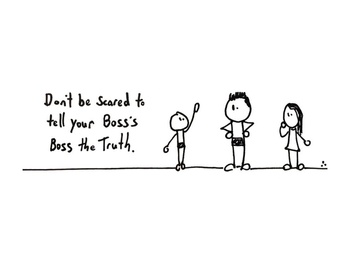Don’t Be Scared To Tell Your Boss’s Boss the Truth
- Thought Leadership
- By Seth Besmertnik
- 5 minutes read
Over and over again, over many years, I sit down with an employee and find out that they’ve been holding onto some extremely important information that was never shared when it could have actually made a difference.
Why does this happen?
They fear some of kind of retaliation, usually from their manager, for saying the wrong thing or passing along something critical. Imagine a company where no one feels comfortable telling their boss their true feelings or giving them honest feedback. Imagine a company where great ideas never make their way to the surface because of fear of retaliation or being judged.
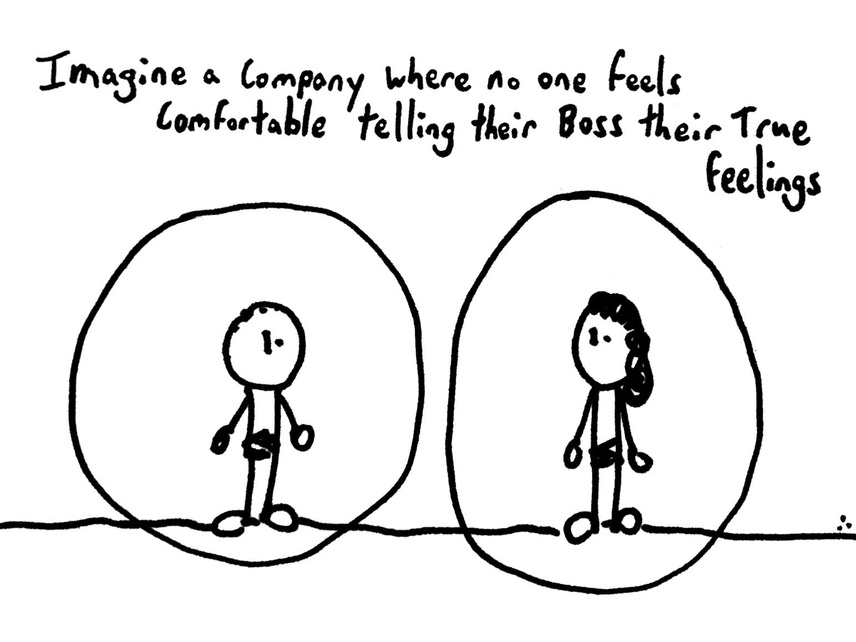
Sadly, this is a world most people (and companies!) are living in.
And what’s worse is that the fear is usually justified.
What happens when someone criticizes management at your company?
Earlier this year, we had an employee write something critical about their manager in an internal, anonymous survey. I noticed the comment and had a pretty good idea who the comment was referring to. In an effort to make things better, I shared this comment with the executive who runs that entire function; my note said “we should look into this—it’s not good someone feels this way”.

Fast forward a few weeks, I learned that the manager who was told of this survey comment, subsequently went to the person who wrote it, and got angry with her. He demanded to know why she would put something like that in a survey. She was reprimanded. Unfortunately for him, he was working at the wrong company for this kind of behavior.
This is classic old-school leadership behavior. Someone does something “wrong:” they speak out of turn, go around the chain of command, give honest critical feedback. They get smacked. Other people hear about it and realize they should be quiet and keep their heads down. And the culture is set: keep your mouth shut - even your anonymous survey isn't safe anymore.
This kind of behavior is the antithesis of a true people-first culture - what we are striving to create at Conductor. And we saw this as an intolerable mistake. As it turned out, the issues the employee brought up in the survey were valid, and many others felt the same way - and this leader was asked to leave. How he handled the criticism was unacceptable.
There’s more than one takeaway from this story: I want to use it as a way to formulate a new kind of mentality for people-first companies.
A Better Way: Building a Culture Open for Feedback
Let’s start with this. If you are a leader and you hear any type of critical feedback from one of your team members, whether it comes directly from your employees, from a survey, or even from your own manager secondhand, your very first reaction should be… thank you so much.
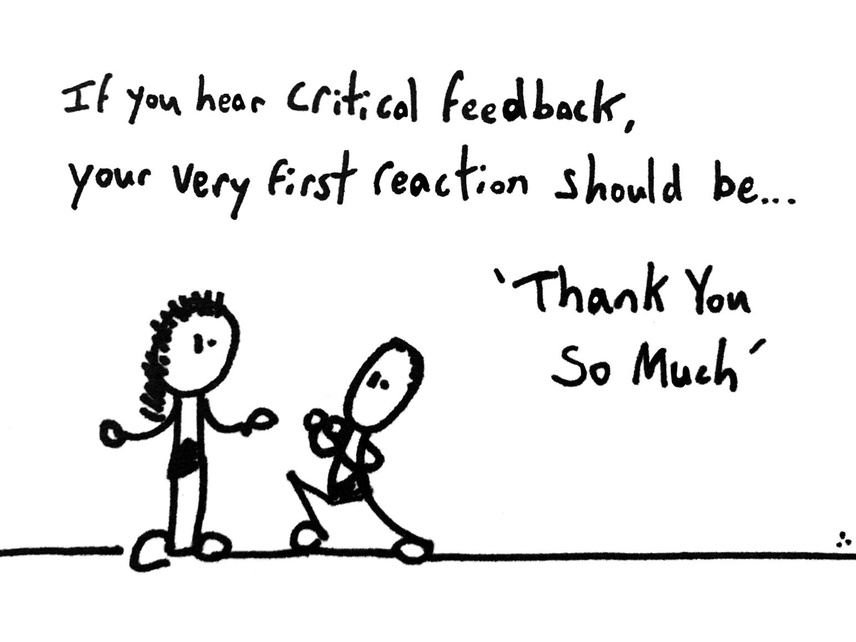
First, be grateful you got the feedback. But if you’re hearing it secondhand, from a survey or somebody who is not your employee, your second reaction should be wow, I really am not doing a great job of making my people feel comfortable giving me feedback—I need to work on this. Your third reaction should be to apologize to the employee for putting them in the position of having to give feedback to a third party instead of directly to you, and commit to working on making it easier for them to give feedback straight to you.
If leaders practice this very simple behavior, suddenly business-as-usual changes in so many ways.
As a leader, it’s your peers and team members that hold almost all the insights that can unlock a better version of yourself. Cultivating the ability to draw those insights from them could save you years or even decades on your path to improving yourself and growing. That’s not just great for you, but great for your company—everyone will massively benefit from the improved you.
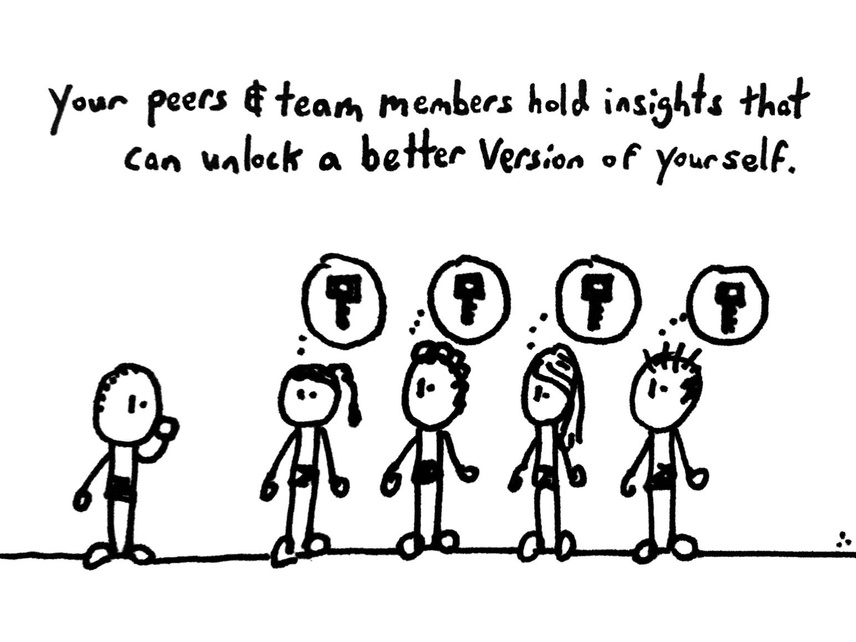
Just as importantly, people will no longer have to live in an environment where they are scared to say something. Scared their feedback will be used against them. Fear that if they are critical, even if they are speaking up in the best interests of the org, their voice will be shunned and their career hopes will be blocked. And because of that fear and bottled up energy, their passion starts to fade, they become disenfranchised, and eventually go numb or just quit.
Implementing a new, more open feedback model is actually not that hard. It starts with your company’s most senior leaders: they have to model this new normal behavior for it to get on throughout the company. Leaders have to show they have to show others that all kinds of opinions are welcome, and are embrace this feedback - even if you do not agree.
Make it clear to all of your people that the company as a whole wants them to say what's on their minds to whoever they are most comfortable saying it to. Build a system so feedback can be given constructively and with the intention of helping.
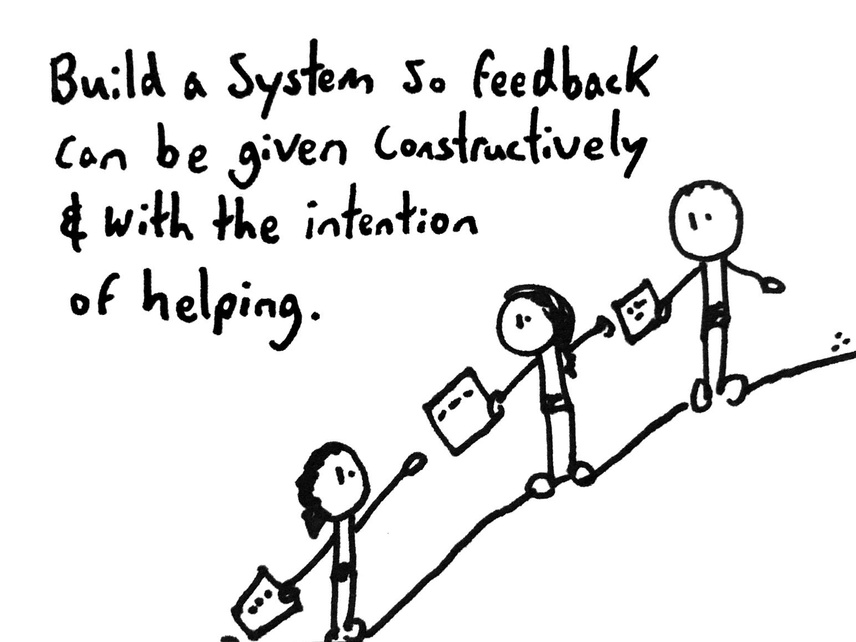
Most of all, you have to champion it: celebrate the stories of people sharing feedback to leaders and how it was embraced and helped the company recognize and overcome challenges or identify solutions or areas for improvement. Spotlight leaders who are grateful for the feedback from their teams. Don’t punish people when you learn something isn’t working for them—instead, look to collaborate with them to think it through and improve.

If you want the truth from your team, it has to start with creating a safe place for them to share it. Otherwise, you’ll be living in a vacuum of your own making and missing out on some incredible wisdom that cannot be found anywhere else.

Want to engage with more people-first perspectives? Connect with Seth on LinkedIn to join the people-first culture conversation.
And join the people-first culture conversation
